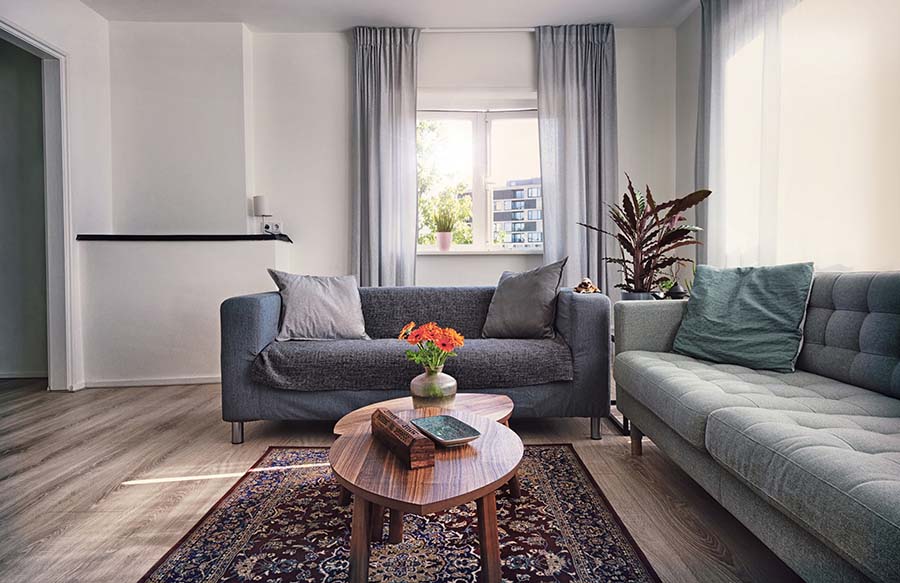Are you thinking about renting out your house in the Netherlands? With rising rents and housing prices, this can be a great investment for you. And while there used to be a requirement for expats to live in the Netherlands for at least three years, new parties make it possible for expats to buy to let without meeting this requirement. Find out more about the buy to let mortgage and what you need to take into account before renting out your house.
Expats Amsterdam specializes in buy to let mortgages. If you have any questions about the possibilities or wish to know how much profit you can make, please contact us.
Renting your current home or buy a new one?
If you wish to rent out a property in the Netherlands as an expat, there are two general ways to go about it. You will either rent out the house you’re currently living in (and move abroad for example), or buy another property in the Netherlands to rent out.
Renting out your current home
If you wish to rent out the home you are currently living in, you need to take into account the changes in your taxes.
- If you live in your home with a mortgage, you will receive a mortgage deduction for your home.
- If you start renting it out, the Dutch government will see the property as your capital. This means it will be taxed differently, and will move to box 3 (for more information about the different tax boxes, please visit the website of the government). You will lose the mortgage deduction, but you rental income will be free of taks.
Buy to let mortgage example
To give a clear overview of the steps and what you can expect, we’ll give you an example:
Buy another property: about the buy to let mortgage
If you wish to buy a second property in the Netherlands to rent out, you will need to apply for a buy to let mortgage. This mortgage differs from a ‘normal mortgage’ in a few ways:
- These mortgages are taken care of by investment banks. A large benefit of this is that they can provide you with a mortgage more quickly than when you apply for a mortgage for private use.
- A buy-to-let mortage will be around 70 to 85% of the value of your new property in rented out state. This means you’ll have to pay at least 15% (mostly more depending on the investment bank) of the purchase price, as well as purchase costs.
- Keep in mind that a property in rented out state is often valued lower than if you were to sell it. This often means you need to pay a larger sum of the purchase price yourself.
There are a few conditions for this mortgage which might apply to your situation. On our buy to let mortage page we created an overview with all requirements expats need to meet.

How much rent can I ask?
This truly depends on the kind of property you would like to buy. For most properties your real estate agency can give you a clear estimate of what they believe is a fair rent price. They look at the state of the property as well as the neighbourhood it is in.
Please keep in mind that the rent will be capped if a house is labeled a home for lower incomes in the Netherlands. This means you can only ask rent up to a certain maximum. A special points system decides if your property either has or will receive that label. Your real estate agency can advise you on this matter.
How can I rent out my property?
You can upload your home to retail websites to find your tenants. There’s a risk involved in this however, since you can’t see beforehand to whom you’re renting your property to. Tenants are protected by various laws in the Netherlands, so you can’t just kick them out if you don’t like them afterwards. That is why we would advise to use a Dutch retail agency. This will cost more in the beginning, but they know the market and know what they can ask for your property.
Finding the right tenant
A rental agency has contacts thoughout the Netherlands to find you tenants, and they will try to get the best tenants for you. They are able to do a background check for example and see if the tenant has paid their rent in the past. They will deal with administration, repairs and other issues that might arise.
Deciding on the rent contract
There are two main types of contracts you can offer your new tenants. A contract with a fixed term, which simply means that your tenant will leave on the end date you both agreed on. A contract with an indefinite term means that they are able to stay for an indefinite period after their original fixed term has ended. You can decide on this kind of contract if you wish to attract long-term tenants for example.
Please note that you can’t easily terminate these contracts. Most of the times you need to wait until the fixed term is up before you can make your tentant leave. If you choose an indefinite contract, you can terminate this contract as long as you abide by the Dutch law. If you wish to rent out your property, please ask your Dutch rental agency for the latest laws and rules.
Renting out through Airbnb
When can you show your house on Airbnb? The Dutch government has changed the laws for short stay rentals after the enormous growth of Airbnb and other rental platforms. The rules in Amsterdam and its municipality state that:
- If you live in your home full-time, but only wish to rent it out during your own holidays, it’s allowed. You can rent out your home for a maximum of 30 nights each year.
- If you live in your home full-time, but have an extra room you wish to rent out, you can do so without limit. Amsterdam did not set a maximum of nights per year. However, the municipality will see you as a Bed and breakfast. You’ll need a permit as Bed and Breakfast to legally rent out your room through this method.
- If you don’t live in your home but have bought a buy to let, you’re still bound to this 30-nights limit for short stay rentals. A contract with fixed term will be more beneficial than an Airbnb listing.
Renting out your house in the Netherlands
Renting out your house or buying a second property can be a good investment if you can meet the mortgage conditions and can keep up with the administration surrounding this new capital. If you would like to know if a buy to let mortgage is for you, please contact us for a free consultation. We will look at your financial situation and discuss your wishes.


